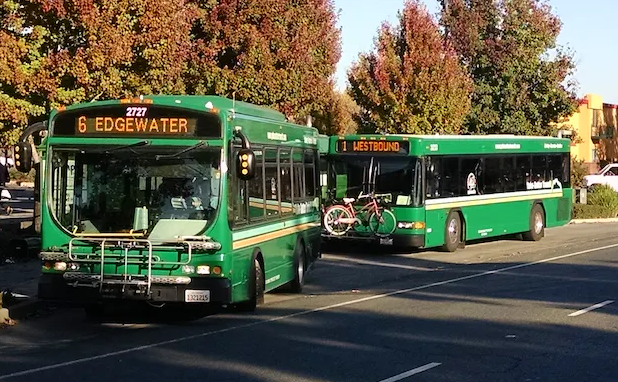Note: GJEL Accident Attorneys regularly sponsors coverage on Streetsblog San Francisco and Streetsblog California. Unless noted in the story, GJEL Accident Attorneys is not consulted for the content or editorial direction of the sponsored content.
The U.S. Department of Transportation today announced the award of $2.2 billion in grants for the Rebuilding American Infrastructure with Sustainability and Equity (RAISE) program. RAISE funding is slated to help communities "move forward on projects that modernize roads, bridges, transit, rail, ports, and intermodal transportation and make our transportation systems safer, more accessible, more affordable, and more sustainable. "
About 160 local projects around the country will receive grants of as much as $25 million. In most cases, this is not enough to fund the entire project, but will be helpful in moving them forward and allowing proponents apply for matching funds for other sources.
In California, eight projects will receive grants on this go-round, for a total of about $120 million.
The largest California grant is $25 million for the California High-Speed Rail Authority's design work on the Merced extension of that project. This will provide more than half of the expected cost for the Madera to Merced design contract, which includes mapping the footprint of the extension north of the Wye into Merced, and designing infrastructure and station platforms from Madera to Merced. This is part of the early operating segment of the high-speed rail program.
This is the second federal grant the high-speed rail program has received in the past year. Last fall, the project was awarded $24 million for construction projects in and around the City of Wasco and State Route 46. The California High-Speed Rail Authority is also pursuing another $1.3 billion in federal grants to double-track the 119 miles currently under construction and to purchase new electric train sets.
Other California projects awarded are:
$23 million to transform Howard Street in San Francisco to encourage safe and equitable mobility. Muni will put Howard on a road diet, adding two-way protected bike lanes and other complete streets fixtures. See Streetsblog SF for more details.
$20 million for grade separations to speed truck access at the Port of Los Angeles. This project will construct a four-lane, rail-roadway grade separation to eliminate a "significant truck access impediment" to the port. Its aim is to reduce truck delays and consequent supply chain clogs. "By providing a grade separation, it reduces thousands of truck vehicle hours traveled and therefore has significant emissions reductions," says the project description.
$15 million for the Inglewood Transit Connector Project, aka the "Peoplemover" connecting the nearly completed Metro Crenshaw/LAX Line, the new stadium, and local communities via an electric automated system. This project has already been awarded state monies, including a $95 million grant from the Transit and Intercity Rail Capital Program (TIRCP), which is funded by cap-and-trade as well as gas taxes.
$15 million for Building a Better Connected Inland Empire in the city of Fontana. This project will "make major complete streets improvements" including a roundabout, raised medians, protected left turns, bus turnouts, crosswalks, a bridge, and 7.5 miles of bike lanes - 2.5 miles of which will be "separated" bike lanes. However, it will also "construct additional lane capacity," which seems to have the potential to undermine some of the project's sustainability benefits.
$15 million for the Yuba-Sutter Transit Authority to build a new bus operations, maintenance, and administration facility to replace its current outdated and undersized center. The larger modern facility will also include solar power generating capacity, allowing the agency to convert its fleet to zero-emission buses.
$5 million to Sacramento to develop Mobility Zones throughout the region. These are areas identified through public engagement as priority areas for transportation projects to address disparities in crashes and injuries.
$1.6 million for a Connected Communities Project in the Tolowa Dee-ni' Nation north of Crescent City. This project will create separated pedestrian and bicycle paths and improved crossings around Highway 101 in a high-crash rural area, as well as better connect different areas of the reservation that are currently bisected by Highway 101.
The RAISE grants make a point of providing grants in both urban and rural areas; three of the California grants are going to rural areas, including the high-speed rail grant.






